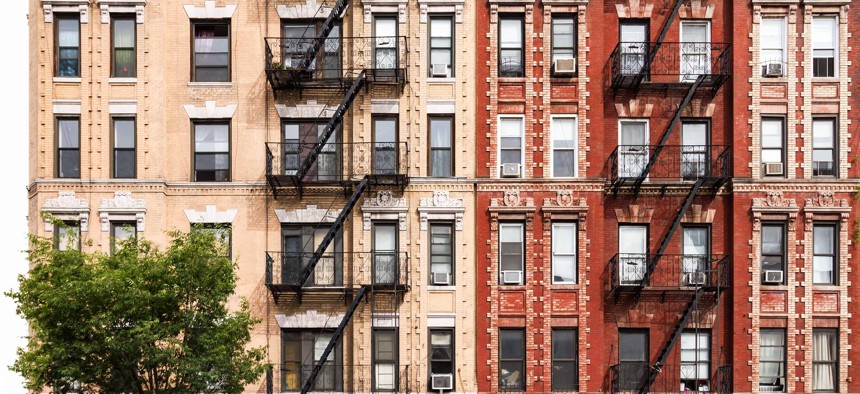Overdue Rent is Piling Up and Could Total $34 Billion by January, Estimates Show

Shutterstock
The National Council of State Housing Agencies says more federal aid will be needed to prevent evictions.
Renter households across the U.S. are on track to owe as much as $34 billion in past-due rent by January and up to 8.4 million of those households could be hit with an eviction filing by that time, according to new estimates that are raising concerns for state housing officials.
Households with incomes under $50,000 account for about 71% of the estimated eviction filings.
Many renters are struggling to cover their housing costs as the coronavirus outbreak, and its economic fallout, have now stretched about seven months, and as the pandemic takes a heavier financial toll on people who are at the lower end of the earnings ladder.
The National Council of State Housing Agencies released a report this week with the rent figures, which were produced by the advisory firm Stout, Risius Ross LLC.
“This analysis is more proof that a huge wave of evictions and additional financial pain will crash on the American economy soon unless Congress authorizes emergency aid to renters,” the council’s executive director, Stockton Williams, said in a statement.
Stout relied in part on Census Bureau survey data to produce the estimates in the report.
The analysis concluded that, based on survey data from mid-September, between 9.7 million and 14.2 million renter households, or 23 million to 34 million individual renters, were falling behind on rent.
The report estimates that the rent shortfall in September for these renters was in the $12 billion to $16 billion range, and that it rises to $25 billion to $34 billion by January.
A nationwide moratorium on evictions that the U.S. Centers for Disease Control and Prevention issued is set to expire in January.
The authors of the report note that their back-rent estimates don’t include any interest or fees that landlords might charge.
The National Council of State Housing Agencies says state housing finance agencies in 33 states have established emergency rental assistance programs since the virus struck. But the group says the programs will fall short of demand without more federal support.
Findings that researchers with the Pew Research Center published last week show that, among lower-income adults, 46% say they have had trouble paying bills and about one-third say it’s been hard to cover rent or mortgage payments since the pandemic started.
Overall, the Pew report said, about one-in-four adults have had difficulties paying their bills, a third have tapped savings or retirement accounts to get by, and about one-in-six have borrowed money from friends or family or have gotten food from a food bank.
These types of actions have been more common among adults with lower incomes, those without a college degree and Black and Hispanic Americans, the Pew researchers also said.
The full National Council of State Housing Agencies report can be found here.
Bill Lucia is a senior reporter for Route Fifty and is based in Olympia, Washington.
NEXT STORY: Treasury Secretary Suggests White House is Open To Deal on New State and Local Aid






